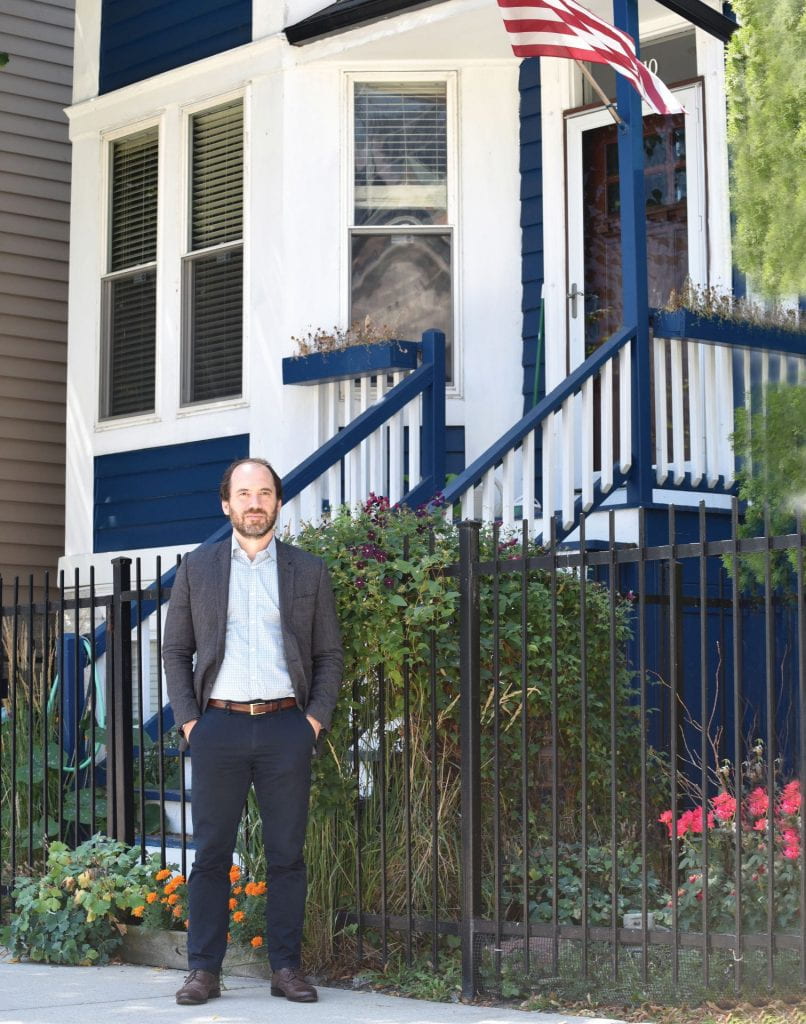The city needs to align planning for future large projects with affordable housing strategies. Otherwise the market will respond accordingly, and the city will lose affordable housing.”
Last spring, when Chicago Mayor-elect Lori Lightfoot outlined her agenda for her first 100 days in office, her priorities included increasing affordable housing to stem population loss in the city. Lightfoot named a 44-member Housing Transition Committee to help her team shape strategies for achieving this goal. Geoff Smith, executive director of the Institute for Housing Studies (IHS) at DePaul, was among the experts tapped to serve on the committee.
Smith participated in two meetings with the mayor-elect’s transition team and the committee to discuss policy ideas and provided a memo with recommendations for preserving affordable housing in the city. “In general, we suggested that the new administration use data to be proactive about targeting strategies for affordable housing, especially in neighborhoods near large, planned city investment projects,” Smith says.
The institute, a research center in the college’s Department of Real Estate, analyzes complex housing data for trends that affect affordable housing in the Chicago area. Its 2016 study of the city’s 606 linear park project, for example, found that one of the unintended consequences of the city turning a defunct elevated rail line into a park was an increase in property values that reduced the availability of affordable housing in some adjacent Northwest Side neighborhoods.
“These data indicate that the city needs to align planning for future large projects, such as the Obama Presidential Center and new trails [similar to the 606], with affordable housing strategies,” Smith says. “Otherwise the market will respond accordingly, and the city will lose affordable housing.”
In his memo to the transition team, Smith wrote that “a data lens can help stakeholders understand local conditions and potential vulnerability; convene diverse audiences around solutions; help develop, prioritize and implement strategies; and track outcomes.”
Although Smith’s work on the transition team has concluded, he says the IHS has strong relationships with local and national policymakers that inform housing policy decisions on an ongoing basis. The institute produces annual reports on the state of rental housing and a quarterly home price index for Cook County, among other research, and posts this information on its website, housingstudies.org.
By Robin Florzak | Photo by Kathy Hillegonds

